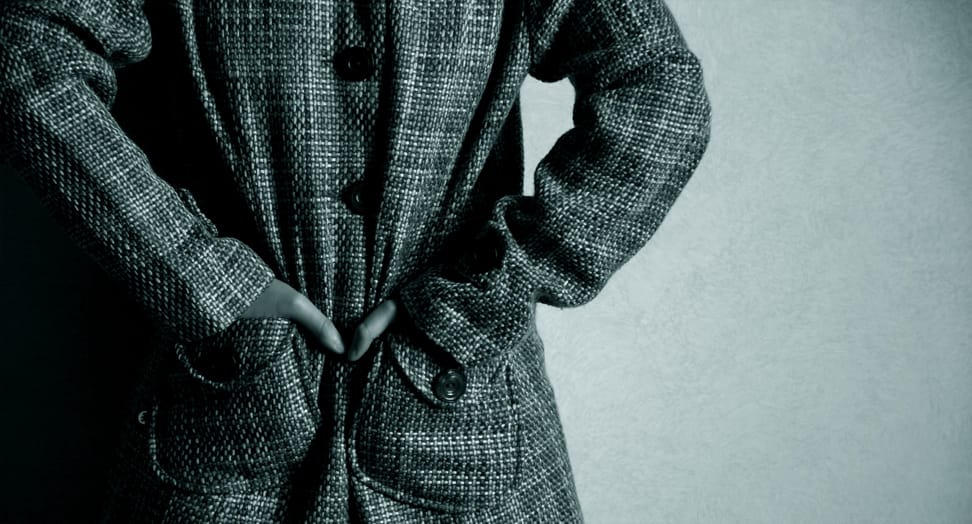Drunk consent is not consent. My rape story
Being friends doesn't make it okay

This week the coat I lost on the night I was raped found its way back to me.
Having languished, dirty and unloved, at the back of a cupboard in a house I occasionally visited for parties, it was unearthed in a start-of-year clean and returned to me. I had been there a year and a half ago for a club social, where I’d drank way beyond my limits, and the night had gone terribly wrong.
I had amazing friends there who offered to take care of me, but I had drunk so much that I was out of my comfort zone, and drunkenly created a Facebook group chat to my most spoken-to contacts (including my mother) begging someone to come and pick me up. One friend lived nearby, and he came and collected me, and took me to his flat.
Once I was there, I was disoriented and scared. I thought I was at my boyfriend’s house, and demanded to know where he was. I demanded to be put in an Uber and taken home.
I’m told it was difficult to get me in an Uber. At home, my friend and my housemate poured me into bed, noting my badly bruised and bleeding knee as I uncoordinatedly wriggled into pyjamas. I was confused, begging for my boyfriend. One of them made a joke that he wasn’t there because he didn’t love me. I believed him when he said we’d broken up, and cried.
They later told me that I was too scared to sleep alone, and that I insisted that my other housemate, who had just arrived home from a different party, get into bed and sleep with me so that I didn’t die in my sleep.
I’d been there a year and a half ago for a club social, where I’d drank way beyond my limits, and the night had gone terribly wrong.
When I woke up in the morning, naked, with this housemate in my bed, and a pool of vomit staining my sheets, I had to ask my other housemate what had happened. We’d had sex, he told me. He’d heard. Twice.
I don’t remember what happened. I don’t remember a lot of the night leading up to this, and it took months to piece together what had happened. Months where I convinced myself that I must have consented to it. Extra-relationship sex wasn’t exactly something that I could claim to be unfamiliar with, and despite the unfamiliar gnawing feeling I had, I trusted that my housemate had not taken advantage of me. My casual approach to sex was always something that I’d had control of; when I’d had sex it was always on my terms. I’d never regretted or felt ashamed of a sexual encounter before, and it was disconcerting to have to ask a third party what I’d done, and simply not know how I’d felt at the time.
I later found out the extent of my memory blackout. I’d been totally out of control. I had thrown up in at least two locations, as well as being vomited on by someone else. He later told me that I was awake and actively participating, and I believe him, but I like my sexual encounters with a bit of dignity, and that does not stretch to being covered in blood and vomit. Without the memory of what happened, I have the more evidence-based assertion that this was not a condition in which I would have consciously agreed to have sex with someone, much less someone who I would have to live with for another six months, and who I hadn’t ever actively considered sleeping with.

But, before I fully understood, while I was still processing my hazy idea of what had happened, word spread to our mutual social circle. On top of having to patch over the deep wound that my apparent choosing to have sex with this particular person gored in my relationship, I found myself expected to joke about it and laugh along. After all, if you’re someone in an open relationship who occasionally has sex with friends, no one thinks that any sex you could have with a friend could be non-consensual, no matter what state you might have been in. It seems that most people really do believe that if you’re someone who ‘gets around’ when you drink, you’re probably always up for it.
There’s such a grey area surrounding consent when you’re drinking, and there’s a huge stigma associated with asserting this after the fact. It’s clear to me now that active participation does not equal consent, and I know now that something was different from the moment I woke up.
I don’t think that any of my friends thought that I deserved to be raped, that by being too drunk or generally promiscuous I was asking for it. They just didn’t believe that I hadn’t given consent. The grey area that surrounds exactly when someone can give informed consent is difficult to navigate, and crossing that line can be easier than you’d think. There are so many people who have been in a situation where they felt uncomfortable about something that happened, but never acknowledged that they could be faultless.
Consent classes are being held all over the country to try and tackle the vast gap between what films and television, pornography, and ‘lad culture’ tell us is a normal sexual encounter, and what actually constitutes informed consent. This isn’t to dampen anyone’s fun – you can have sex when you have been drinking – but we all need to reconsider whether what we often think of as casual drunken flings are making us and our partners feel good, or if they’re so far into the grey area that they’re damaging and traumatising.
For me, it was difficult to come to terms with how much it had upset me. How can you be traumatised by something that you can’t remember, or something that maybe wasn’t even unpleasant at the time? There wasn’t anything to have flashbacks about, just an intense feeling of unease and unfocused anxiety.
It took a long time, a lot of evidence, and an astute interpretation of an offhand comment I made to a sexual health doctor to make me realise that I did have a right and a reason to feel distressed, and to release some of the guilt that I’d been feeling.

I like to think that now I’m okay. I no longer freak out when I see him on Facebook, and I could probably interact with him face to face without having to take the next day off to lie in a dark room. I struggle to remain friends with people who still see me as simply regretting having sex with him, who have told me to stop making excuses for my decisions, and who continue to reference it. I’m no longer friends with my other housemate, who it turns out questioned my ability to consent at the time, but didn’t think to intervene.
The repeated surveys and campaigns that take place at Imperial reveal an undercurrent of sexism running through the college on every level. Every day in my academic career, I am forced to fight and defend myself as equally competent as my male counterparts. Imperial strives to achieve equality for all genders, and for the most part, things are improving. But it is horrifying to find people in this environment who feel that it is my fault that someone chooses to have sex with me without my consent, because I made the decision to drink too much at a party. It is appalling that there are people here that think that I no longer have ownership of my body if I have slept with more than n people in the past. At Imperial, the sexism that I face every day manifests itself in a rape-and-control culture that is subtle and pervasive.
I didn’t expect to be in the situation where my friends were slut-shaming me after being sexually assaulted. I thought that these were liberal, good people, who were aware of the subtleties of consent. Imperial being Imperial, I think that in general we experience less widespread lad culture than the average university. But what I learnt from this is that misogynistic lad and rape culture is deeply ingrained in everyone, even here, and we need to actively try to correct it. Having a peripheral awareness of the existence of rape culture, and acknowledging that it is a bad thing is simply not enough.
In a recent retrial, footballer Ched Evans was found not guilty of raping a girl in a similar situation, after spending two and a half years in prison following his conviction in 2012. For victims of sexual assault and rape, it is very difficult to report the crime, and this is reflected in the numbers of unreported cases. For the accused, it can be incredibly damaging, as this is one of the few parts of the law where guilt is assumed over innocence, regardless of the outcome of the trial. Although I feel strongly that having had his conviction overturned, he should now be treated as innocent, I was horrified to read about the line of questioning that the victim (who made the accusation) was forced to endure. She was subjected to an examination of her sexual history, with her previous sexual partners giving evidence as to whether they thought that this particular sexual encounter was something that she would have enjoyed and wanted.
I didn’t expect to be in the situation where my friends were slut-shaming me after being sexually assaulted. I thought that these were liberal, good people, who were aware of the subtleties of consent
This questioning sets a dangerous precedent, as it is horrendously discouraging to victims of sexual assault to know that they may have to tolerate public questioning of this level in order to enforce the law. I know that my previous sexual behaviour does not contribute to whether or not I am giving consent in situations like this, and that allowing the consideration that it might merely serves to perpetrate the idea that if a woman is promiscuous, anyone has a right to, in the words of Donald Trump, “grab her by the pussy”, and control her however they want.
It’s funny when you know the person who assaulted you so well, when their lives are so intertwined with yours; extracting yourself from this tangle is complicated and traumatic. After enduring months of having panic attacks whenever I could not avoid returning home, I managed to move out. Filtering out my cutlery, books, and games consoles from his room was painful, and the stupor that I was in while packing cost me a lot of my stuff, that I was long resigned to losing.
To get my coat back feels like it’s come full circle. Along with the coat comes a rush of memories and emotions surrounding how I lost it. I don’t think that I’m the same person who lost this coat, who felt safe enough among friends to get that drunk. To be assaulted cost me friends, possessions, and eventually contributed to the end of my relationship, and these consequences are not something that I can easily forget. But after I get it very thoroughly cleaned, I’ll put the coat back on, and each day I wear it I’ll remember, and every time I remember it will get a bit easier. After losing so much, to get something back feels like I’m finally taking back control.








